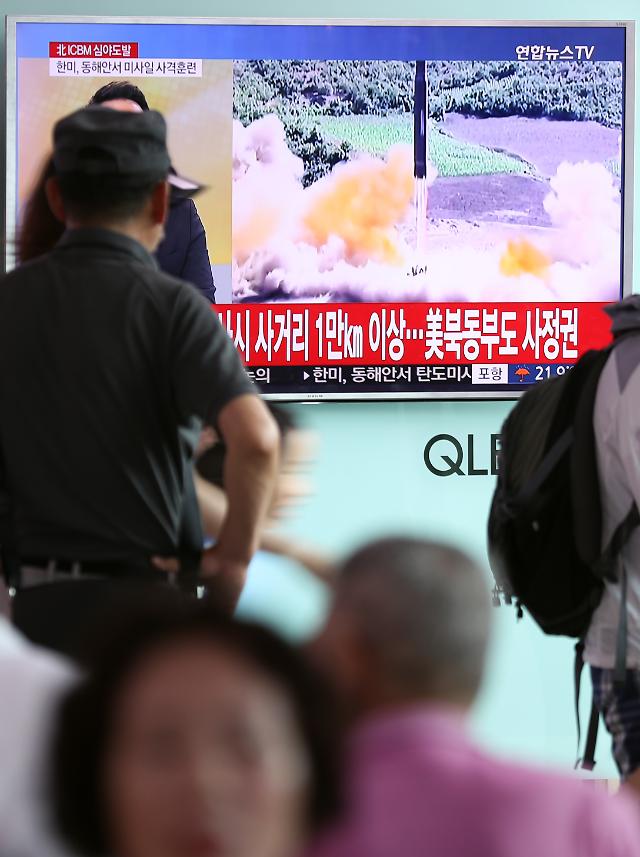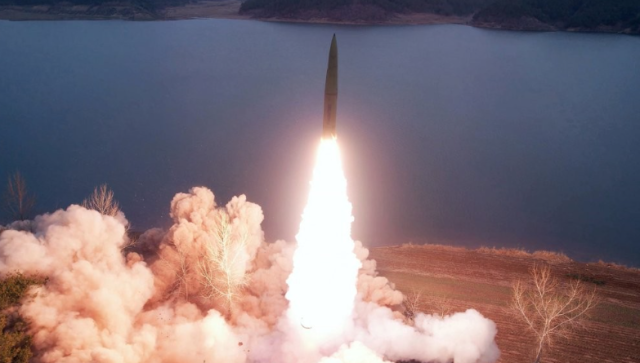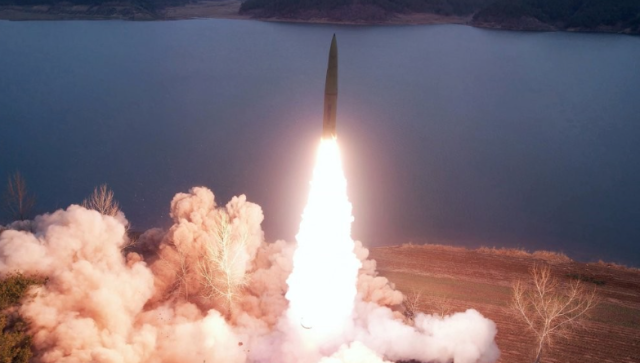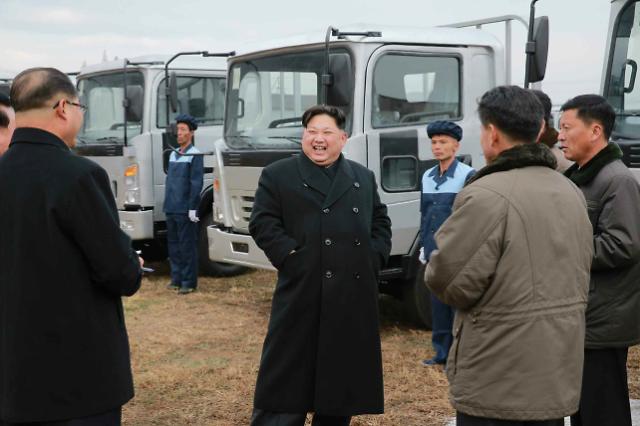
South Koreans watch TV news reporting North Korea launching a long-range missile at Seoul Station last month. [Yonhap Photo]
North Korea's fresh long-range missile test stoked a public debate in South Korea on indigenous nuclear-powered submarines that could raise concerns about proliferation in Northeast Asia.
It's almost hard to find negative posts on South Korea's two major search portals, Naver and Daum, over the idea of reviving a stalled nuclear submarine program, although military officials are cautious.
"(We) are ready to take it into consideration," Defense Minister Song Young-moo testified at a parliamentary committee on Monday, referring to nuclear submarines, after he flatly ruled out any nuclear armament.
A day later, the defense ministry added a brief supplementary explanation, saying nuclear submarines require a "comprehensive" study of international treaties, a repercussion effect in the international community, and other factors.
The development of home-made nuclear submarines gained attention in June when Song said the subject was already factored into South Korea's long-term submarine program to counter North Korea's submarine-launched ballistic missile (SLBM) program. At that time, his remarks failed to receive widespread attention.
North Korea's second test launch of a long-range ballistic missile led to a clear change in South Korea's public perception about nuclear submarines.
"If we really care about our homeland, we should immediately work on manufacturing nuclear submarines, no matter what Japan and China say," wrote a Naver user nicknamed "pyun", backed by many positive posts regardless of ideology.
"mahanaim", a Daum user, said, "We have technology and skills to create nuclear submarines. There's no reason not to. It's a great opportunity to strengthen our military power."
Building nuclear submarines is not a violation of non-proliferation treaties, but it may send a wrong or conflicting signal to China and Japan. For decades, South Korea has been on watch by the nonproliferation community because of its covert nuclear program in the 1970s.
In 2003, then President Roh Moo-hyun pushed for the so-called "362 project" to build three 4,000-ton nuclear submarines, but it was scrapped a year later with no explanation.
President Moon Jae-jin, who inherited Roh's policies, said during a pre-election TV debate that Seoul should open re-negotiations with Washington on revising a 2015 nuclear accord that has effectively restricted the development of reprocessing technology and facilities to acquire enriched uranium as fuel.
Piles of spent fuel rods stacked at more than 20 nuclear reactors have been a stringent issue in South Korea, which manufactures home-made reactors and exports nuclear power plants because Moon promised to accelerate the shutdown of old reactors.




